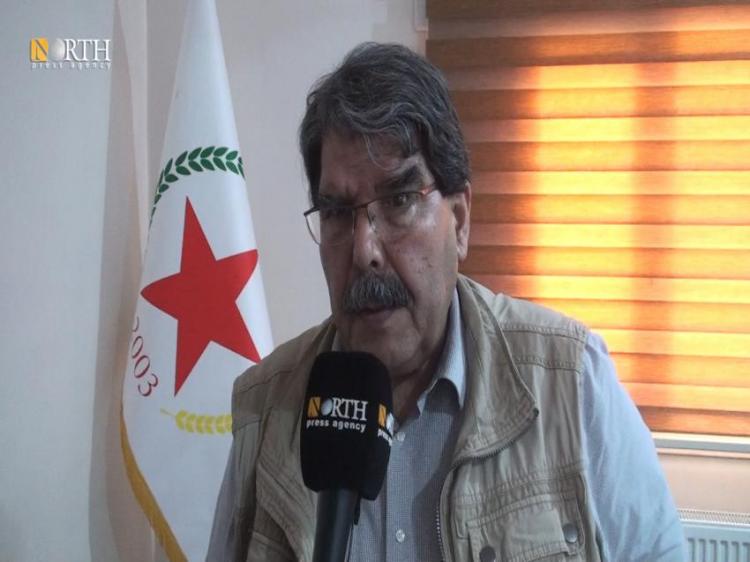Salih Muslim: restoration of occupied lands on the Kurdish-Kurdish dialogue agenda
Qamshli – North-Press Agency
On Monday, former Democratic Union Party (PYD) co-chair Salih Muslim said that the restoration of areas occupied by Turkey are on the agenda of the Kurdish-Kurdish dialogue, whose initial sessions called for the restoration of those areas.
Muslim told North-Press that the Kurdish-Kurdish talks are in their second stage, which are expected to start within days, will be based and built upon the provisions of the Dohuk Agreement, according to the changes the region has witnessed since its signing until now, adding that the second stage of the dialogue will discuss the existing structure of the Autonomous Administration and the establishment of a Kurdish position.
The Dohuk Agreement was signed between the People’s Council of Rojava and the Kurdish National Council (ENKS) in the city of Dohuk in the Kurdistan Region of Iraq in 2014, and led to the formation of a Kurdish political stance in Syria. However, it did not come to fruition as a result of mutual accusations between the two parties, according to many observers.
Muslim stated that the first stage of the talks were meetings which revealed many common political visions between PYD and ENKS, without elaborating.
Regarding the announcement of the first stage’s success by the Syrian Democratic Forces (SDF), Muslim added that this came based on political consensus in ideas, indicating that the second stage will begin very soon and that the PYD are ready to begin.
Last Friday, SDF commander Mazloum Abdi announced the success of the first stage of the Kurdish-Kurdish dialogue, which he called for earlier this year.
Muslim refused to mention the points of contention between them and ENKS, explaining that there was a consensus about the future of the Syrian state and the Kurdish people, as well as the attitude towards the Syrian opposition, stressing that the parties have not signed any political document yet.
Muslim noted that the final signature is postponed until the end of all discussions and that there are ongoing efforts and communication with the Kurdish parties in Syria to join the dialogue in its expected stages.
The Kurdish Democratic Unity Party in Syria (PYKS) and the Kurdish Democratic Progressive Party in Syria (PDPKS) did not participate in the upcoming dialogues because “they preferred to wait, though we discussed and asked them to join the dialogue and communication with them still exists,” Muslim said, hoping that they will join the dialogues in the absence of the fundamental differences.
Muslim stated that the American presence in the Kurdish-Kurdish dialogue process strengthened the agreement, especially as Kurdish interest overlapped with that of the US regarding Kurdish unity.

